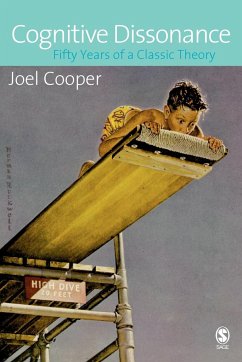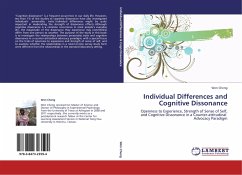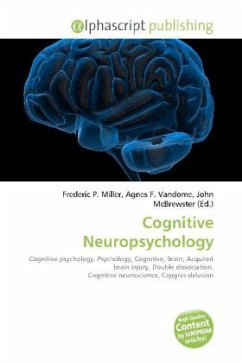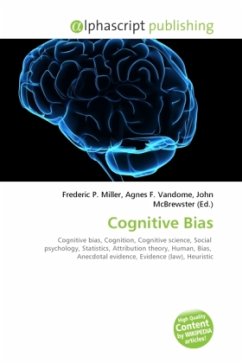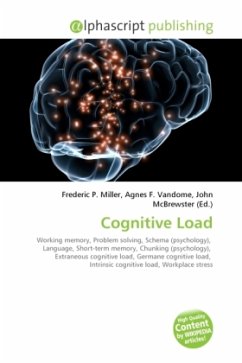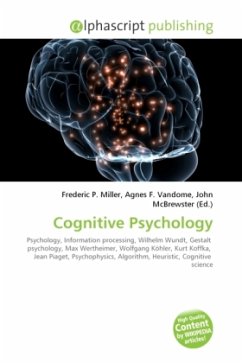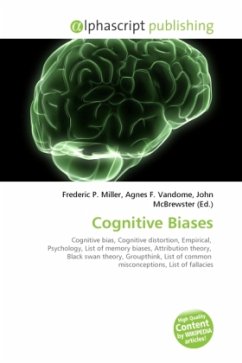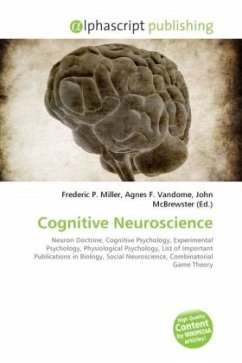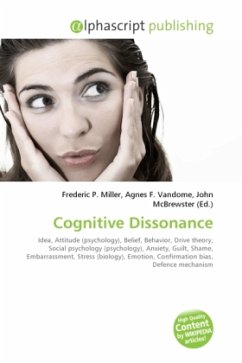
Cognitive Dissonance
Versandkostenfrei!
Versandfertig in 6-10 Tagen
26,99 €
inkl. MwSt.

PAYBACK Punkte
13 °P sammeln!
Cognitive dissonance is an uncomfortable feeling caused by holding two contradictory ideas simultaneously. The "ideas" or "cognitions" in question may include attitudes and beliefs, the awareness of one's behavior, and facts. The theory of cognitive dissonance proposes that people have a motivational drive to reduce dissonance by changing their attitudes, beliefs, and behaviors, or by justifying or rationalizing their attitudes, beliefs, and behaviors. Cognitive dissonance theory is one of the most influential and extensively studied theories in social psychology. Dissonance normally occurs wh...
Cognitive dissonance is an uncomfortable feeling caused by holding two contradictory ideas simultaneously. The "ideas" or "cognitions" in question may include attitudes and beliefs, the awareness of one's behavior, and facts. The theory of cognitive dissonance proposes that people have a motivational drive to reduce dissonance by changing their attitudes, beliefs, and behaviors, or by justifying or rationalizing their attitudes, beliefs, and behaviors. Cognitive dissonance theory is one of the most influential and extensively studied theories in social psychology. Dissonance normally occurs when a person perceives a logical inconsistency among his or her cognitions. This happens when one idea implies the opposite of another. For example, a belief in animal rights could be interpreted as inconsistent with eating meat or wearing fur. Noticing the contradiction would lead to dissonance, which could be experienced as anxiety, guilt, shame, anger, embarrassment, stress, and other negative emotional states. When people's ideas are consistent with each other, they are in a state of harmony, or consonance.



